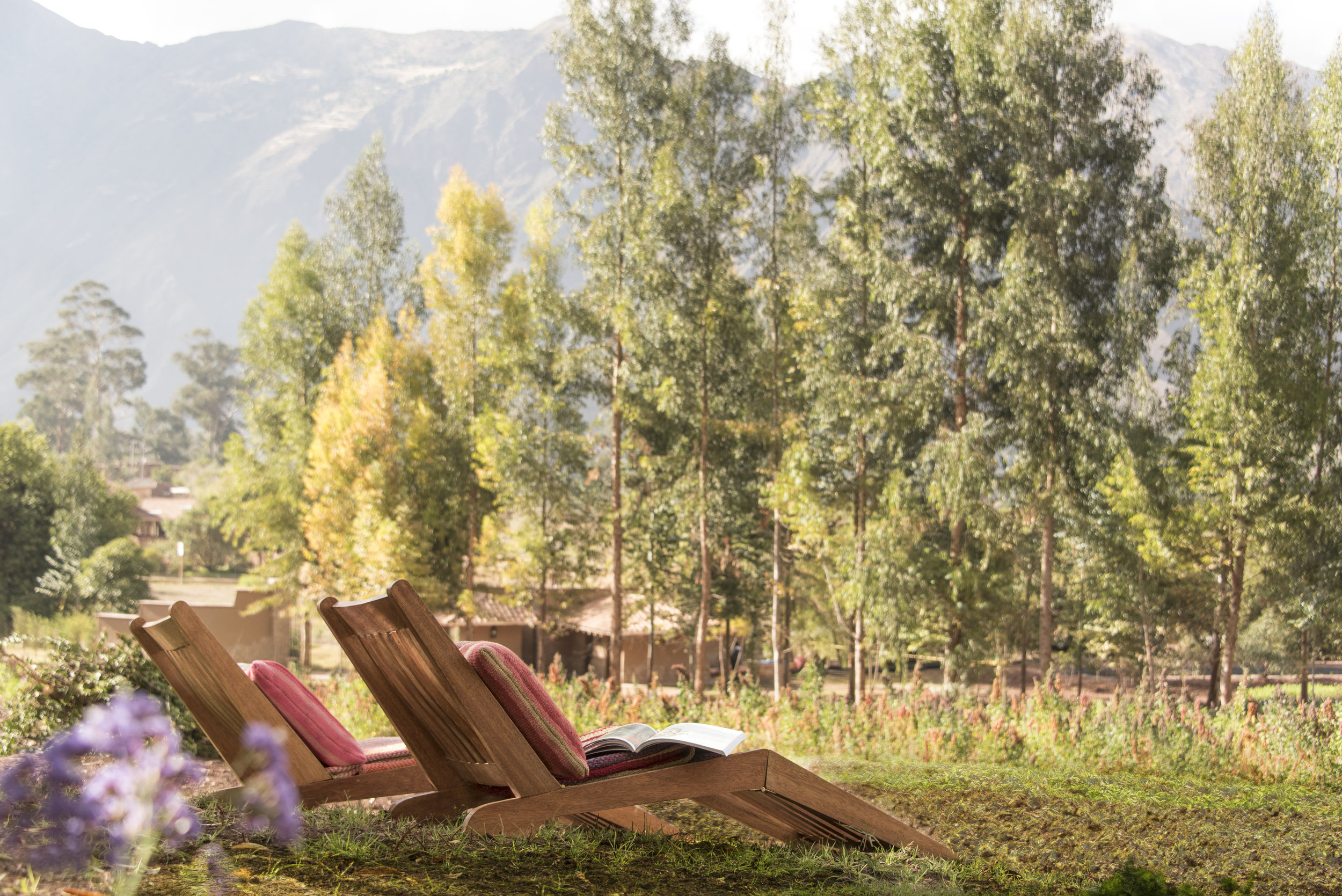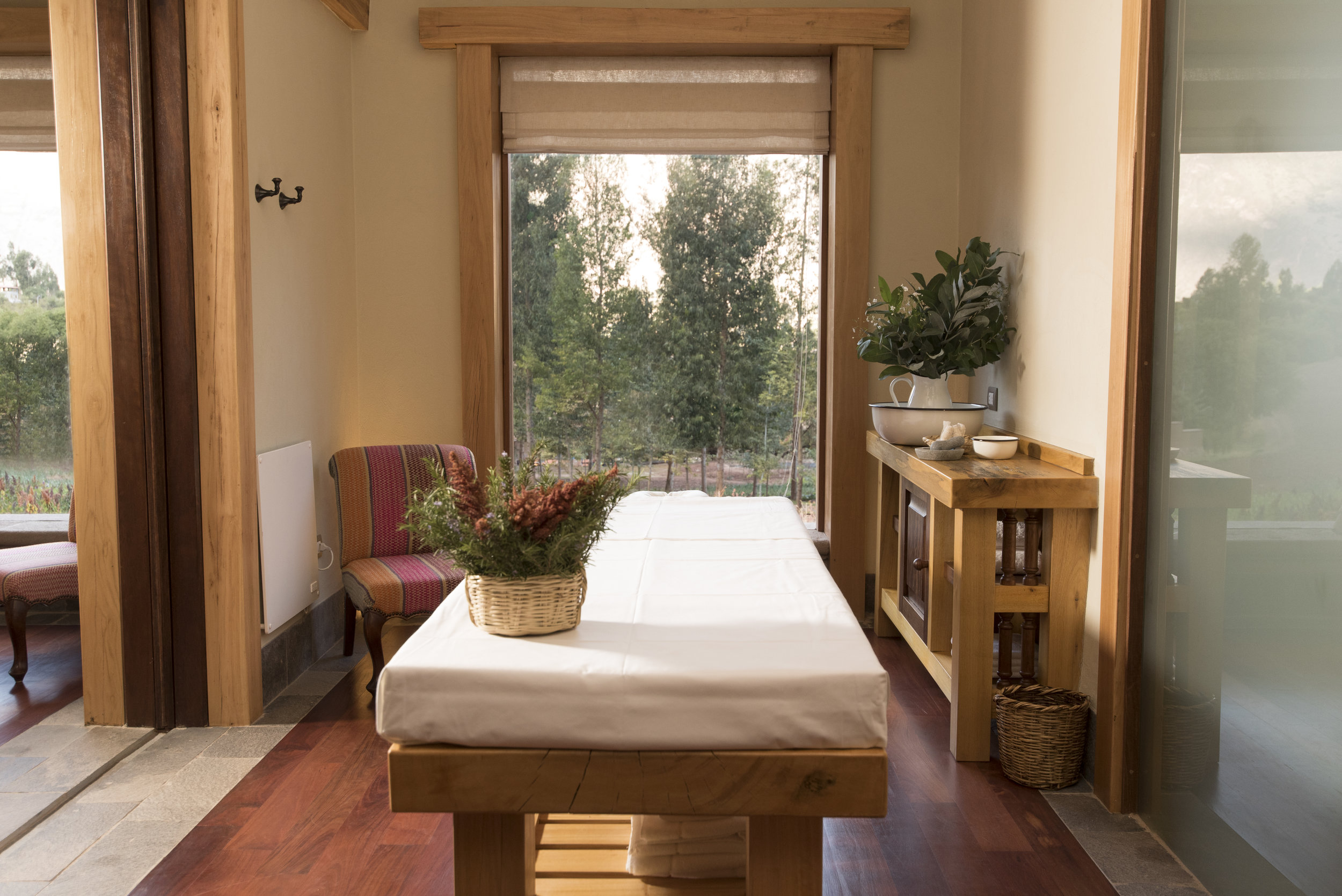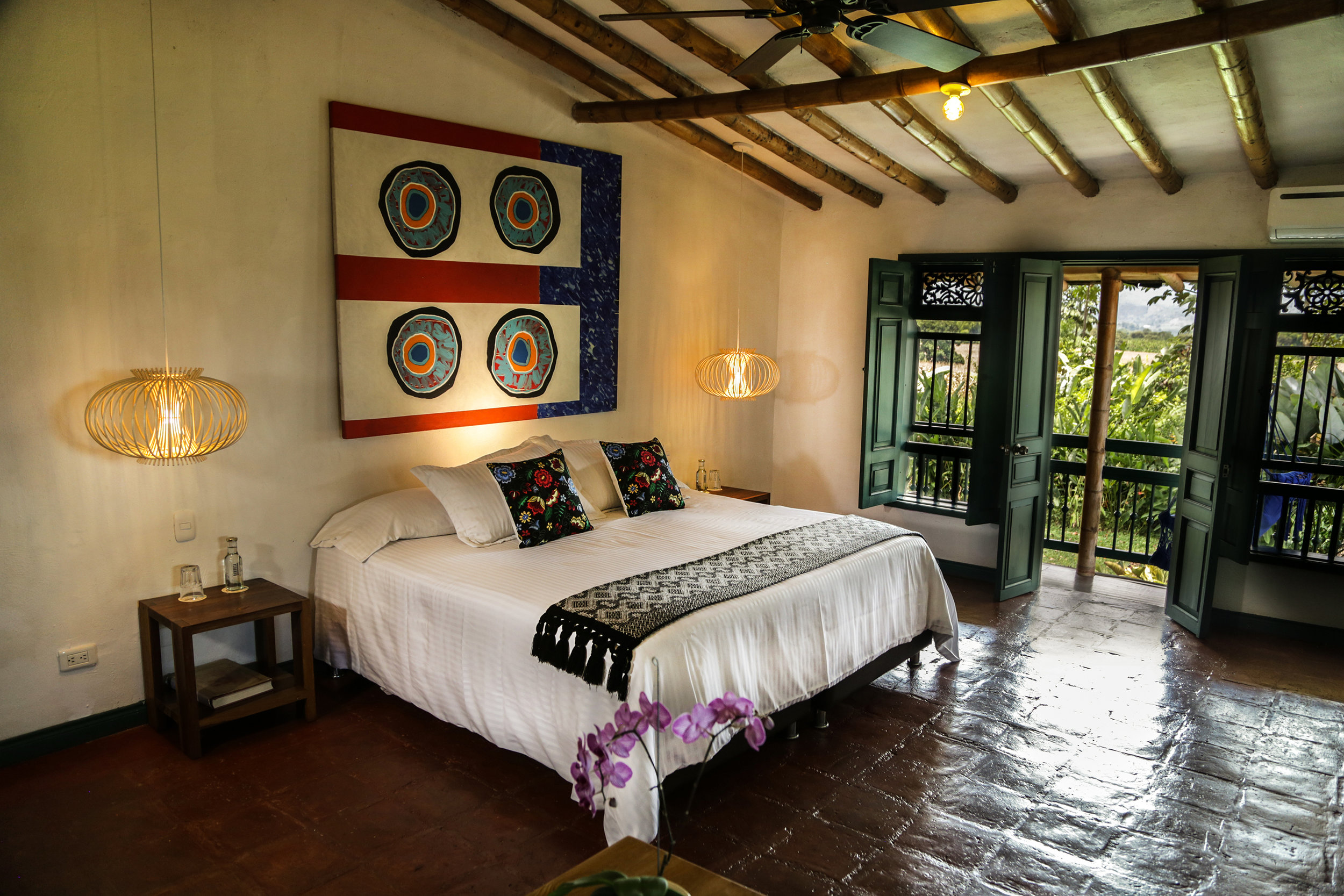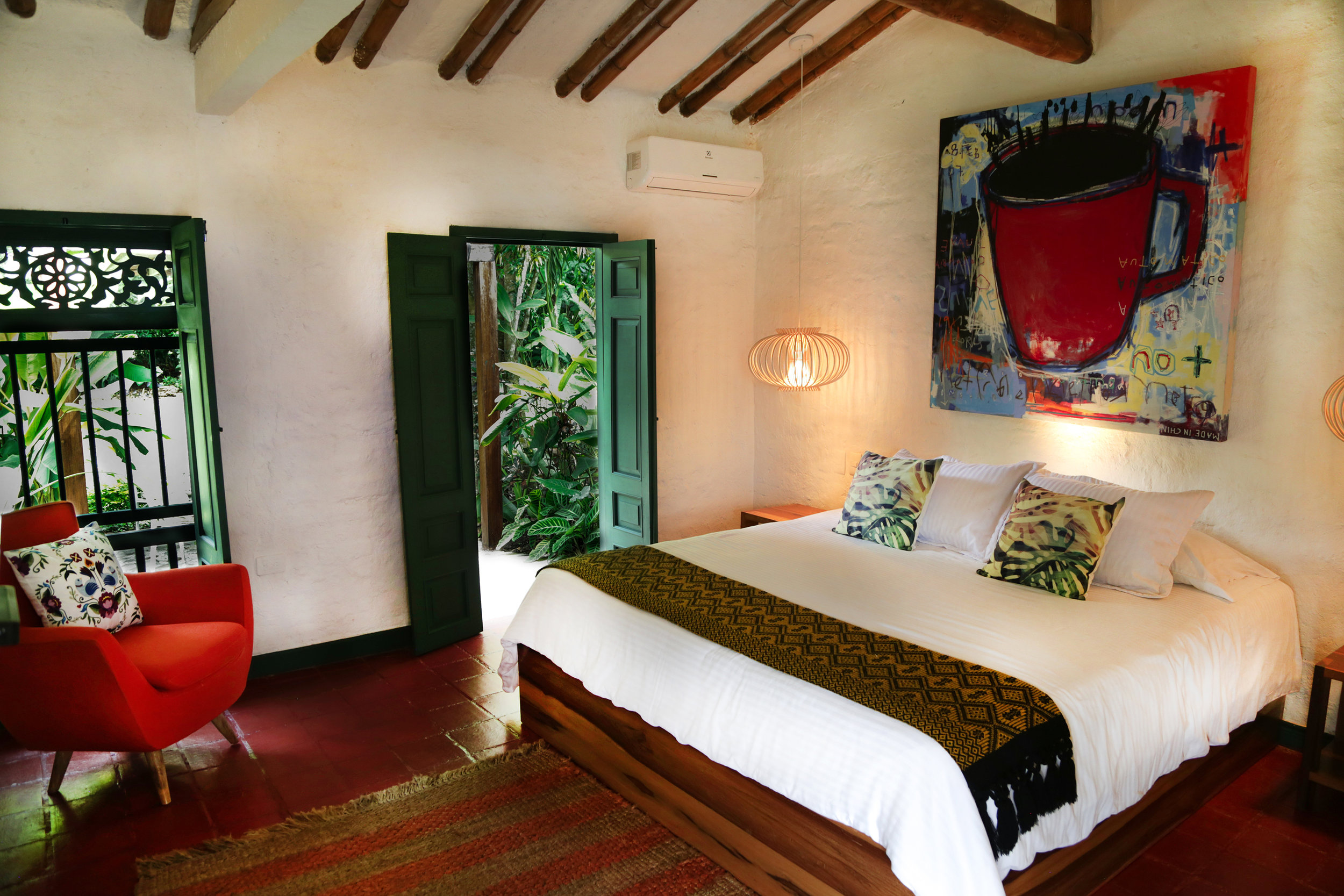The Everyday Actions of Earth Day Heroes Across Latin America
Earth Day serves as a fantastic annual reminder to recycle more, plant a tree, and turn off the water when brushing one’s teeth. But what about the other 364 days of the year? We are lucky to partner with some of the boldest thought leaders and action takers in Latin America when it comes to protecting & bettering the planet.
The Everyday Actions of Earth Day Heroes Across Latin America
Every year, Earth Day serves as a fantastic annual reminder to recycle more, plant a tree and turn off the water when brushing one’s teeth. But what about the other 364 days of the year? When the crazy news cycle immediately pulls our attention in 10 million other directions, who is still prioritizing our planet’s wellbeing and keeping conservation & sustainability top of mind as daily guiding principles for operation?
In many ways, the travel industry has taken up this mantle, being uniquely poised to expose people with the means to travel to our seemingly dim global reality of pollution, habitat destruction and climate change. But it also shines a strong light on practices that prioritize environmental conservation, sustainable operations and projects that preserve local culture while also providing employment in impoverished areas.
We are lucky to partner with some of the boldest thought leaders and action takers in Latin America when it comes to protecting & bettering the planet. Changing people’s mindsets, taking real action against plastic and waste managements, creating protected wildlife corridors and creating jobs while preserving unique local culture. Here’s a roundup of some of the most impactful sustainability initiatives that your guests can experience at our hotels & lodges in Latin America:
1.) Promoting Appropriate Luxury at Galapagos Safari Camp
When Galapagos Safari Camp founders Stephanie Bonham-Carter and Michael Mesdag first climbed a tree and took in the mesmerizing view of the Santa Cruz highlands, they knew they wanted to create a low-impact hospitality experience connects guests with the fragile nature of the Galapagos Islands rather than another predictable hotel. Their philosophy of “Appropriate Luxury” applies to every decision they make in operating the Galapagos Safari Camp, from relying on rainwater collection to growing their own food and utilizing solar power whenever possible. Questions like “Why don’t the safari tents have AC?” or “Why doesn’t your lodge have Jacuzzi tubs or televisions?” are an opportunity to engage potential guests in a dialogue about the environmental costs of importing the resources (diesel generators and fresh water) to provide these “expected luxuries.” And begs the question that, as visitors to this natural sanctuary, why do we feel entitled to certain amenities that the resident population has learned to adapt without?
“Consider for a moment that the animals on land have adapted to the lack of freshwater. Giant tortoises can go for months without a reliable source of water, sea lions depend on the fish they eat for their daily intake and Darwin’s finches wait until the wet season to mate.”
GSC invites guests to adjust their own vision and expectations of what “should” be available and considered luxury, setting aside notions of ordinary opulence in exchange for truly engaging with a different and unique environment. Visit their website for a deeper dive into the concept of Appropriate Luxury.
2.) Waging War Against Waste at Machu Picchu: Inkaterra Machu Picchu Pueblo Hotel
What happens when an isolated archeological wonder without overland highway access attracts nearly 1.6 million visitors a year? A massive amount of waste is created and left behind, so much so that in 2016 the waste management crisis at Machu Picchu contributed to the Inca citadel being evaluated for UNESCO’s list of ‘World Heritage in Danger.’
To manage the impact of trash left behind by visitors, Inkaterra & beverage manufacturer AJE group have partnered to launch an organic waste treatment plant in Machu Picchu Pueblo. This will make the area the first in Latin America to manage 100 percent of its solid waste through pyrolysis, which decomposes the waste at high temperatures without oxygen. The plant has the capacity to process seven tons of waste per day to generate bio-coal, a natural fertilizer that will help with the reforestation of the Andean cloud forest and contribute to agricultural productivity in Machu Picchu.
This is in addition to other initiatives that the Inkaterra Association has already spearheaded in the region. To address the plastic waste left by tourists, they already operate a compacting and recycling center that processes a staggering average of 14 tons of plastic daily. And to discourage local communities, hotels and restaurants from disposing their used cooking oil into the Vilcanota River, Inkaterra helped build a biodiesel production plant to process used oil. The plant produces 20 gallons of biodiesel daily from nearly 6,000 liters of used oil a month.
Inkaterra — with properties in the heart of the Machu Picchu cloud forest, deep in the Amazon rainforest, in the city of Cusco and in the Sacred Valley of the Incas — creates authentic travel experiences, while preserving biodiversity and local cultures in Peru.
3.) Protecting Pumas Beyond the National Park: Awasi Patagonia
Chile’s Torres del Paine National Park is considered the best place on the planet on see the elusive puma thanks to an abundance of juicy guanacos to feed on and protection from hunters within park boundaries since 1972. An estimated 50 cats currently live within the park and studies indicate that their numbers are on the rise.
But what happens to the big cats when they roam beyond the borders or TDP where they are not protected? Close to 100 pumas are killed each year in Chilean Patagonia, mostly by sheep ranchers offering a bounty payout on puma skins. And as the puma population grows, along with the annual number of visitors to Torres del Paine, these solitude-seeking predators are more likely to wander beyond their invisible safety net.
To counteract this issue, Awasi Patagonia and the Awasi Puma Foundation have created a 11,000 acre protected corridor adjacent to the park, turning a former sheep farming estancia into a private reserve. Native grasslands and shrubs have been allowed to regrow after years of overgrazing and the private status of the reserve keeps human visitors to a minimum, allowing free and safe reign to its rightful inhabitants: guanacos, pumas, condors and other species.
While the Awasi Puma Foundation is relatively new, its impact is already measurable. Earlier this month, a guide at Awasi Patagonia spotted two rare Geoffroy’s Cats kittens on the private reserve, indicating that this seldom seen feline is thriving in the protected corridor adjacent to the park. Guests of Awasi can join a biologist researcher and guide on a special puma tracking excursion in the private reserve.
4.) Preserving Cultural Heritage: El Otro Lado & Bahia Portobelo Foundation
Portobelo was once the busiest city in the New World and the point for all trade between Europe and of South America, including the inhuman trade of enslaved Africans. A small group of slaves – the Cimarrones - won their freedom and established their own communities in and around Portobelo where they preserved and celebrated their African heritage.
With the creation of the Panama Railroad and Panama Canal, Portobelo’s usefulness as a trade port was eliminated. While economic opportunities flourished in Panama City and along the Canal Zone, the gap between the country’s rich and poor widened, aided by racism and little government support for infrastructure and education in remote areas. Along the Caribbean Coast, areas with indigenous or minority populations such as Portobelo were cut off from the prosperity of the other side of the country. Panama today is one of great contrasts and an income inequality comparable to Brazil and South Africa.
Founded in 1993 as the Portobelo Workshop, today’s Fundación Bahía de Portobleo, supported in part by El Otro Lado, works to improve the local quality of life by promoting socioeconomic projects within the community that also preserve & celebrate the community’s African identity. Guests at El Otro Lado are invited to discover the soul of Portobelo’s Congo Culture through drumming lessons or cultural dance performances with local students at the Escuelita del Ritmo (Little School of Rhythm) or art and woodcarving workshops at the art studio. Today, the foundation supports over 100 local students with free classes in music, dance, art and educational support. The facilities house five music rooms, a dance room, workshops, study halls, English and computer labs, a recording studio and a multi-use room for recitals, concerts and cinema. Much of the support comes through tourism, and the two hotels and restaurants fully run by the foundation, as well as El Otro Lado, account for the employment of over 100 local people.
Latest News from the Properties - December 2018
Here is a roundup of the latest news and happenings from each of the properties, from faster boats and room improvements at Titilaka to the opening of a new spa at Hacienda Urubamba. In addition to updates from our existing properties, we also welcome UNESCO recognized El Otro Lado Private Retreat in Panama to the portfolio this year!
Latest News from the Properties
PERU
After a decade of innovation and setting the bar for exclusive & immersive luxury experiences on Lake Titicaca, Titilaka is in the midst of several renovation & expansion projects. These are being conducted in such a way as to not affect guests staying at the lodge and are set to conclude by mid 2019.
Chief among the improvements are:
Titilaka Corner Rooms
Outdoor hot tub and new-state-of-art motors for faster boats will be available (completed in November 2018)
All rooms, common and social areas as well as terraces are being redecorated while corner rooms are revamped with additional amenities
New services are being implemented including complimentary access to airport VIP lounge for all guest, Wi-Fi in all the hotel's vehicles and boats and enhanced culinary experiences are being put in place.
Titilaka is also adjusting their rates next year, the first increase since 2014. For clients desiring the utmost in privacy and flexibility, this is a great thing as the Titilaka Experience can now be booked on an all-inclusive, private basis. The traditional Titilaka Experience will also remain available for guests who want to participate in set excursions on a shared basis.
Lastly, the team behind Titilaka has announced plans to expand, with new lodges planned for Arequipa (2019) and Cusco (TBD). You can view a full presentation on Titilaka’s upgrades & changes here.
Inkaterra’s Hacienda Urubamba, a Virtuoso Property, recently celebrated the opening of Mayu Spa (“River” in Quechua) in August. With a rustic chic design inspired by traditional Andean architecture, Mayu Spa is located on a low hill between I Hacienda Urubamba’s organic orchard and an enchanting pepper tree forest. Treatments are based in 100% natural products derived from native medicinal herbs; the new wellness center has a plunge pool, four private therapy rooms and a dry sauna and offers a variety of massages, therapies, reflexology and facials. For more details, check out their blog post on Mayu Spa.






Some say that you hear the best stories while sitting at the bar. Axel Romero at Hotel B, the cocktail wizard who was recently awarded the Best Peruvian Bartender 2018 at the Summum 2018 Awards, knows the value of a good bar yarn and uses these as inspiration behind his cocktails. For this experienced bartender, each drink is a chance to write an exquisite and stimulating story in which spirits, juices and spices are cast in the leading roles. He is passionate about his career: after previously working at Astrid & Gastón for several years, he is now at Hotel B where he is committed to making each one of his drinks an experience. Read more about Axel and other winners of the Summum Awards (like the James Beard awards for Peru) here.
COLOMBIA
The team at Hacienda Bambusa has been busy in 2018, creating new activities & excursions and elevating the details of the 8 en suite bedrooms within the Hacienda. New photos are available via dropbox in the Hacienda Bambusa image library and the Activities Book can be easily shared with guests to help them select their desired excursions in advance. Choose the Best of Bambusa option for an all-inclusive experience and a great value for your guests.








COSTA RICA
To cope with increasing tourism in Manuel Antonio, Arenas Del Mar continues to pioneer new experiences for their guests to enjoy in the area. Coming soon are early morning visits to a private nature reserve with great wildlife viewing and mountain biking in the hills above Quepos.
Latitude 10 Resort in Santa Teresa closed for part of October & November to undergo renovations and has reopened looking better than ever! New king-size canopy beds in each suite, soft upgrades & in-room amenities, a completely revamped menu and on-site experiences (like complimentary on-site cooking classes and beachfront yoga) have completely elevated the Latitude 10 experience.
Kurà recently welcomed a new Spa Director (formerly of Hacienda Alta Gracia) and has completely revamped the menu at Spa Shà in addition to creating new breakfast, lunch and dinner menus. Ask about full board options for guests, available for booking on request.
Lapa Rios Lodge has added themed dinner nights to their menus - including BBQ, Dock to Dish Night (make your own ceviche) and “Comida Tipica” to showcase local foods enjoyed in Costa Rica. This gives guests staying 3 or 4 nights an excellent variety in meal choice and is also fun & interactive for families.
Lastly, the Cayuga Collection team has been hard at work opening Senda Monteverde, a new boutique lodge just a short walk from town and adjacent to a private Cloud Forest Nature Reserve. Senda officially opens on December 15 and to celebrate, is offering 10% when booked in conjunction with another Cayuga property. Details and restrictions are found via the link.
ECUADOR & GALAPAGOS
If you have any clients looking for a last minute "festive season" option, we just had some unforeseen prime date cancellations at Hacienda Zuleta in Ecuador. Couldn't think of a more welcoming place to be than with the Galo-Plaza family over the holidays - hiking and horseback riding during the day and feasting on farm fresh cheese and wine by the fireplace in the evening. You can either contact your DMC or email mariafernanda@haciendazuleta.com for updated availability over Christmas, New Years and into January.
If you are unfamiliar with Hacienda Zuleta, check out the video below for an overview on this gem of a property. If you would like a copy branded with your own logo as an intro, please send Clark your logo and he can provide it to you.
Mashpi Lodge has always maintained a great blog, but recent posts are particularly helpful for travel advisors from a sales perspective.
Seasonal Weather, Birds & Animals at Mashpi
What’s the Ride to Mashpi Lodge Like? (Good hour by hour breakdown of the journey from Quito to Mashpi)
Family Friendly Activities at Mashpi Lodge (Divided into younger children, older children and teens)
Galapagos Safari Camp owner Stephanie Bonham-Carter recently wrote a great blog post about “Appropriate Luxury”, a concept we applaud and support across all of our properties that operate in remote and fragile environments. Creating a luxury guest experience that is equally respectful of the natural world is a balancing act, and there’s a good reason you won’t find imported fish or out of season produce on the menu or air conditioning in your tented suites.
Check out the full post here: Appropriate Luxury in the Galapagos - The Safari Camp Approach and share this with your clients.
Galapagos Safari Camp also recently become of the Traveller Made consortia in November.
Do you have travelers staying at Casa Gangotena who like to get out and explore on their own?
Share these “Three Recommended Walks Through Quito’s Old Town” for suggestions on great self-guided walking tours to local markets, churches, down interesting side streets and to beautiful vista points. Quito’s Historic Center is best explored on foot and the staff at Casa Gangotena are always happy to suggest activities tailored to your client’s interests.
CHILE & ARGENTINA
Due to last minute cancellations, Awasi Atacama has space in January, which was previously 100% full. Here are the available dates for Awasi Atacama in January 2019.
6-10 January
10-15 January
14-17 January
18-23 January
25-28 January
28-31 January
Contact your DMC or info@awasi.cl to book. Additionally, Awasi Atacama welcomed new General Manager, Nicolás García to the lodge this month.
Need a moment of calm during the always busy month of December? Transport yourself into nature with this video from Awasi Iguazu.
Juan Pablo Culasso was born blind. He taught himself how to identify birds by listening to their song. He has become one of the world’s most respected bird experts; using just his ears, not his eyes. Listen to some of his recordings in Awasi Iguazú:
NICARAGUA
It was a hard year for Nicaragua & for Jicaro Island Lodge. After enjoying a hugely successful year in 2017, tourism in Nicaragua came to a standstill following political protests & violence that began in April of 2018. Jicaro Island was forced to suspend guest operations for a few months, though as many staff as possible remained employed throughout the temporary closure. Laying people off in a time of crisis only contributes to a desperate spiral and owner Karen Emmanuel used her personal resources to keep staff on the payroll through six months of closure.
With a quiet but emotional celebration on November 15, Jicaro Island Lodge officially reopened their doors to guests and Karen was there to share in the experience. In the video below, Karen shares her love for Nicaragua, especially the people who make Jicaro Lodge and the country so enchanting. Special reopening rates are available - contact your local DMC or reservations@jicarolodge.com.
PANAMA
We’re thrilled to welcome El Otro Lado Private Retreat into our portfolio. Located across the bay from Portobelo (which just received UNESCO recognition for the significance of the local Congo Culture), this colorful hideaway is an ideal base for exploring the Caribbean reefs, beaches and rainforests of Portobelo National Park, learning the fascinating legends of the likes of Sir Francis Drake and the pirate Henry Morgan, and immersing oneself in the colors, rhythms and flavors of the Congo Culture. Cozy details in the rooms and public spaces and a new wellness program also make it a perfect retreat to relax & recharge.
New in 2019, El Otro Lado will offer all-inclusive rates (full board, excursions, on-site activities & wellness experiences) and we’ll be hosting an extensive webinar on all of the changes and updates soon. In the meantime, enjoy this short video highlighting the best of Portobelo & El Otro Lado.
Panama is hot right now and Isla Palenque has been enjoying a fair amount of press. Check out the latest Town & Country issue for their guide on Where to Travel in 2019, featuring Panama and Isla Palenque.
Isla Palenque also recently announced their Dock to Dish program, making it the first hotel to Panama offer certifiably sustainable, community-sourced seafood through the award-winning program out of Montauk, NY. Learn more about the mission of Dock to Dish via the link to their website.
Summer Trips that Transform, Inspire & Enlighten
For today’s traveler, the summer holiday season isn’t just about relaxing on a beach with a frozen cocktail or soaking up sunshine somewhere. Increasingly, travelers want to utilize their vacation time to learn a new skill, pursue personal development, or tackle a physical challenge that leave them transformed. These destinations offer just that.
Summer Trips that Transform, Inspire & Enlighten
For today’s traveler, the summer holiday season isn’t just about relaxing on a beach with a
frozen cocktail or soaking up sunshine somewhere. Increasingly, travelers want to utilize their
vacation time to learn a new skill, pursue personal development or tackle a physical challenge that leave them transformed, with lasting habits and a changed outlook on life and the world around them.
If you have clients – both families and adults – that are in search of something immersive, educational or somewhat off the grid over the North America summer months, look no further than Latin America. We’ve compiled a list of our favorite picks for experiences that will challenge & enlighten while also offering extra value due to the off-peak time frame for each destination.
Use the links below to access the individual posts about each destination and experience.
The Cayuga Collection - Leaders in Sustainable Luxury
Get to know the mission and values of the Cayuga Collection, a world leader in providing sustainable hospitality experiences. The six properties that we currently represent in Costa Rica, Nicaragua and Panama are all managed by Cayuga.
With the expansion of this portfolio into Central America, we’re excited to welcome six new properties in Nicaragua, Costa Rica and Panama that are all operated by the Cayuga Collection, an industry leader in providing sustainable luxury hospitality experiences.
Founders Hans Pfister and Andrea Bonilla are both graduates of Cornell University’s Hotel School in Ithaca, New York and dedicated ecotourism professionals. (Hans actually began his career managing the Hampton Inn at the San Jose Airport where he made waves in the late 80s by eliminating single use bath products in favor of refillable bottles.) Together, Andrea and Hans started Cayuga in 1994 with the goal to blend true luxury travel with practices that are both environmentally friendly and beneficial to the local communities. They now manage nine individually owned hotels across the region, of which we are currently representing six. These are Jicaro Island Ecolodge, Latitude 10 Resort, Arenas del Mar , Kurà Design Villas, Lapa Rios Ecolodge and Isla Palenque, a new private island resort along Panama's north Pacific coast. In 2017 Cayuga won the National Geographical World Legacy Award in the Earth Changers category.
Andrea and Hans - Founders of the Cayuga Collection
While there is some variation across the properties, the following are hallmarks of the entire collection:
No Single Use Plastic Bottles or Straws: Tap water at the Cayuga hotels is always treated and filtered to international standards and is 100% safe for human consumption. Guests are encouraged to bring their own water bottles to refill or can borrow one for the duration of their visit. Additionally, the Cayuga properties did away with plastic drinking straws several years ago, replacing these with a robust, compostable bamboo option which was the brainchild of a gardener at the Harmony Hotel in Nosara. Needless to say, he’s not gardening anymore.
Bamboo straws in cocktails at Jicaro Island
Sustainability on Display: A mission of the Cayuga Hotels is to educate guests on their sustainability practices, even the unglamorous and often overlooked ones like composting and carefully monitoring exact water to load ratios for optimal energy efficiency in the laundry room. Each property offers a complimentary “Behind the Scenes” sustainability tour to showcase the various ways green practices are implemented. This ranges from using solar panels to heat water to raising pigs to break down compostable scraps in order to produce biogas.
Go Natural: You won’t find trimmed grass lawns or perfectly paved walkways at these properties. Most of the hotels exist within the tropical rainforest so lush, natural vegetation is cultivated and in many cases, was left intact and undisturbed when the property was constructed. This equates to more wildlife, especially birds and monkeys who feed on the fruits of established trees.
Natural vegetation means more wildlife overhead or right outside your window
Employ Local: Across the 9 properties and including headquarters in San Jose, Cayuga employs over 400 individuals from Nicaragua, Costa Rica and Panama. Staff at each hotel are 80%-100% from the local community immediately surrounding the property. All positions are year round, keeping service standards consistent and fostering cross training among employees who don't have to worry about seasonal layoffs which are typical at many Costa Rica hotels.
Eat & Drink Local: Cayuga piloted the global “Dock to Dish” program in Central America - they connect their chefs with local fishermen and only use responsibly caught seafood. This often leads to unique dishes as the hotels all pledge to purchase and prepare whatever teh fishermen bring in that day. Additionally, their restaurants use only grass-fed beef and hormone-free chicken and as many locally produced and organic fruits and vegetables as possible.
Local fishermen in Puerto Jimenez, part of the Dock to Dish program at Lapa Rios
Community Investment: The company founded and finances a public charity called Earth Equilibrium, which focuses on environmental education & community development. Supported projects range from providing local schools with solar power and a water filtration system to providing residents with educational, infrastructure and sustainable food projects
It's true that the Cayuga Collection properties may not be for everyone; travelers seeking a larger tropical resort experience with AC, dedicated pool butlers, manicured grounds, golf courses or a full gym may be happier with the international name brand resorts typical of Costa Rica's Papagayo Peninsula. But for travelers who seek to experience authentic local culture, have friendly and genuine interactions with members of the community, travel in a style that is environmentally conscious while giving back through travel, Cayuga is for them.


































